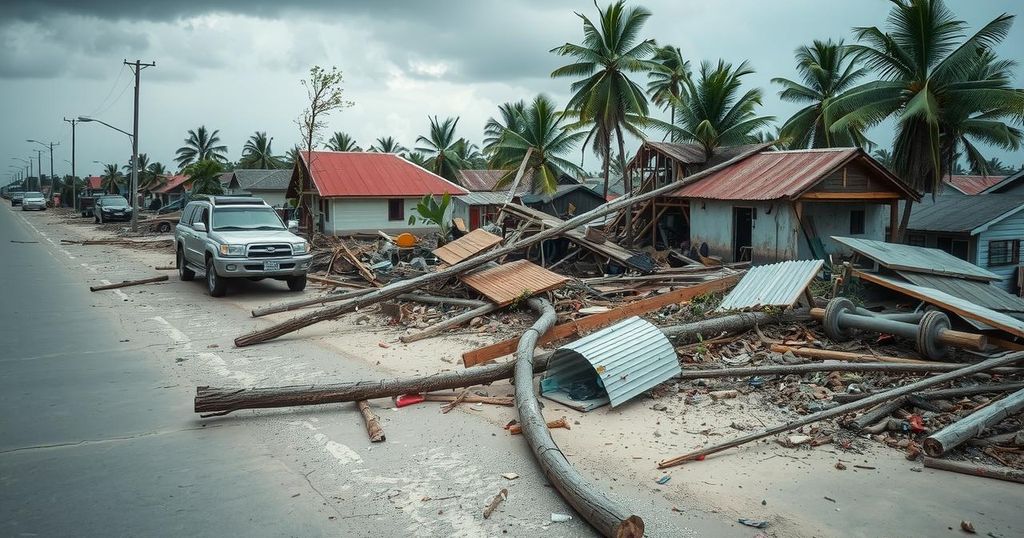Devastation in Northern Mozambique: Cyclone Chido Claims 120 Lives

Cyclone Chido has claimed 120 lives and injured 868 in northern Mozambique, with over 680,000 people affected by destruction that includes damage to homes, schools, and health facilities. The cyclone’s severity has called for urgent humanitarian assistance, underscoring the need for resilient infrastructure to mitigate future impacts of climate change.
Cyclone Chido, a devastating tropical cyclone, has tragically resulted in the loss of 120 lives and left 868 individuals injured in northern Mozambique. Over 680,000 people have been adversely impacted by this natural disaster, as reported by the national disaster relief agency of Mozambique. The cyclone struck on December 15, unleashing torrential rains and fierce storms, primarily affecting the provinces of Cabo Delgado, Nampula, and Niassa, which experienced severe flooding and destruction of infrastructure. The damage sustained is immense, with more than 123,000 families and 622,610 residents enduring the aftermath. It is estimated that over 150,000 homes were damaged, along with 250 schools, 89 public facilities, and 52 health institutions, resulting in nearly 110,000 students being significantly affected.
In reaction to the catastrophic situation, the government has established two emergency shelters to assist the displaced individuals, currently sheltering around 1,349 people, as reported by Xinhua news agency. The National Institute for Disaster Risk Management and Reduction has underscored the cyclone’s severe consequences on the education and health services, stressing the urgent necessity for robust infrastructure that can withstand the impacts of climate change. Cyclone Chido formed on December 5 over the southwestern Indian Ocean, having previously caused considerable damage in Mayotte before its landfall in Mozambique.
The cyclone initiated as a tropical depression and intensified into a powerful tropical cyclone characterized by sustained winds exceeding 120 km/h. As authorities and international humanitarian organizations continue to appeal for support to assist affected communities, the ongoing plight demonstrates the pressing need for resilient measures against the increasingly frequent extreme weather phenomena.
Cyclone Chido’s devastating impact on northern Mozambique highlights the vulnerabilities faced by this region, which has endured significant weather-related destruction in recent years. Tropical cyclones frequently pose risks to coastal communities, and the effects of climate change intensify these instances, as rising temperatures contribute to increasingly severe weather patterns. Understanding the formation, development, and potential fallout from tropical weather systems is essential for preparedness and response strategies.
In summary, Cyclone Chido has wrought significant devastation in northern Mozambique, resulting in numerous fatalities, injuries, and vast infrastructure damage. The immediate need for emergency assistance is apparent, and the repercussions extend beyond physical damage, severely affecting educational and health services. This disaster emphasizes the necessity for proactive planning and resilient infrastructure to mitigate the impacts of future climate-related threats.
Original Source: english.mathrubhumi.com







